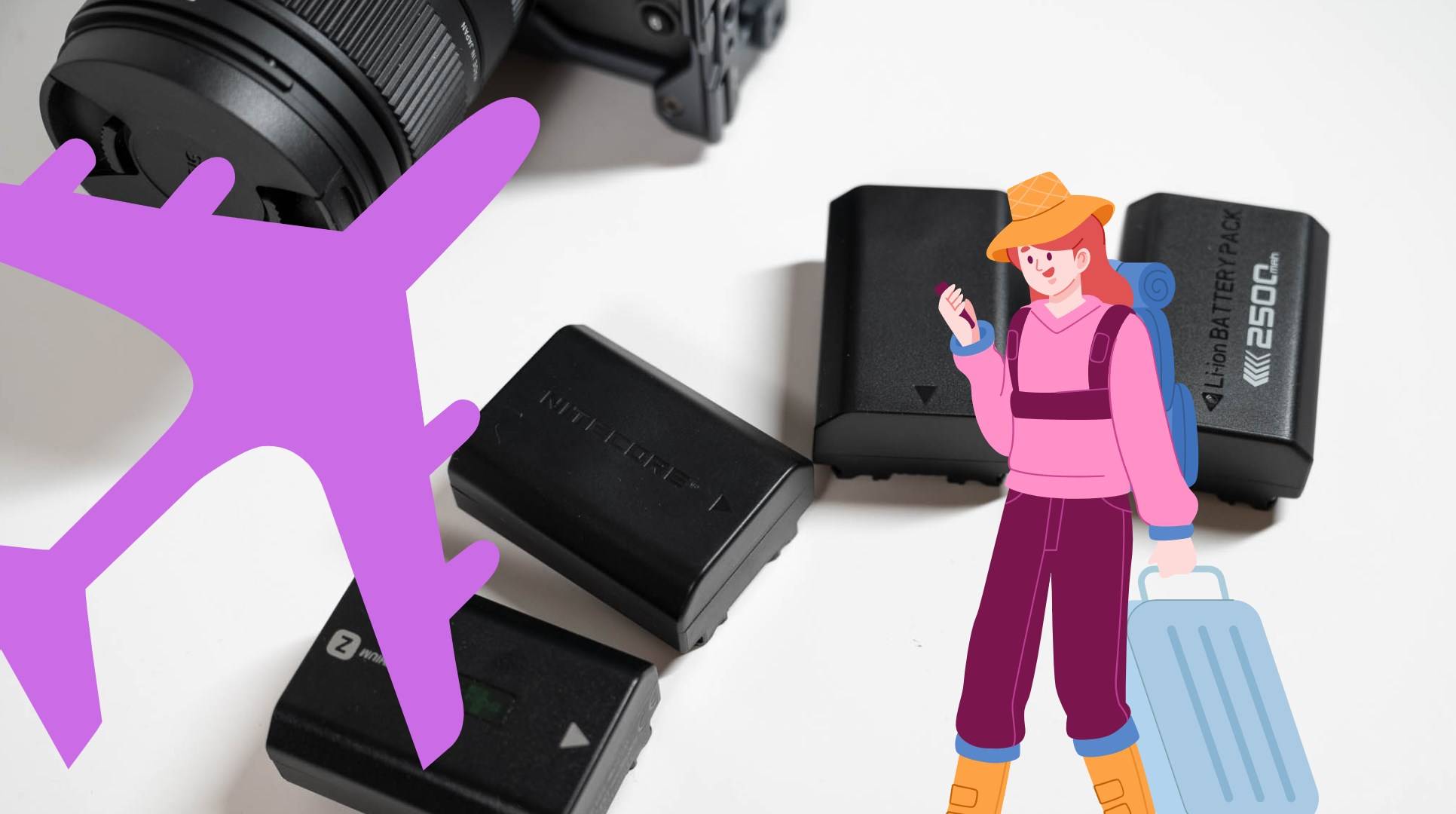Traveling with camera batteries, especially lithium-ion types, requires understanding airline regulations to ensure safety and compliance. Most airlines allow lithium-ion batteries in carry-on luggage but have specific rules regarding quantity and capacity. Knowing these guidelines can help you avoid issues at security checkpoints and protect your equipment.
What Are the Regulations for Taking Lithium-Ion Batteries on Flights?
Lithium-ion batteries are classified as hazardous materials due to their potential fire risk. Regulations typically state that:
- Carry-On Only: Spare lithium-ion batteries must be carried in your carry-on luggage.
- Capacity Limits: Batteries must not exceed 100 watt-hours per battery.
- Quantity Restrictions: Most airlines allow up to two spare batteries over 100 watt-hours with prior approval.
| Regulation | Description |
|---|---|
| Carry-On Only | Spare batteries must be in carry-on luggage |
| Capacity Limits | Maximum of 100 watt-hours per battery |
| Quantity Restrictions | Up to two larger batteries allowed with approval |
How Many Camera Batteries Can You Bring on a Plane?
Passengers can generally bring multiple camera batteries, but specific limits apply:
- Standard Alkaline Batteries: No restrictions on quantities for AA, AAA, C, or D batteries.
- Lithium-Ion Batteries: Up to two spare lithium-ion batteries are allowed in carry-on luggage without exceeding capacity limits.
| Battery Type | Allowed Quantity |
|---|---|
| Alkaline | Unlimited in carry-on |
| Lithium-Ion | Up to two spare batteries |
What Types of Batteries Are Allowed in Carry-On Luggage?
When flying, the following types of batteries are typically permitted:
- Alkaline Batteries: Common household batteries (AA, AAA) can be carried without restrictions.
- Lithium-Ion Batteries: Must be installed in devices or carried as spares within capacity limits.
- Lithium Metal Batteries: Subject to similar restrictions as lithium-ion.
| Battery Type | Status |
|---|---|
| Alkaline | Allowed without restrictions |
| Lithium-Ion | Allowed under specific conditions |
| Lithium Metal | Subject to airline regulations |
How Should You Pack Camera Batteries for Air Travel?
Proper packing is essential to ensure safety during air travel:
- Use Original Packaging: Keep batteries in their original packaging if possible.
- Protect Terminals: Tape over battery terminals to prevent short circuits.
- Separate Bags: Place each battery in separate bags or cases to avoid contact.
| Packing Method | Description |
|---|---|
| Original Packaging | Provides optimal protection |
| Protect Terminals | Prevents accidental activation |
| Separate Bags | Reduces risk of short circuits |
Can You Take Lithium Camera Batteries on a Plane?
Yes, lithium camera batteries are allowed on planes, but they must be handled according to specific guidelines:
- Installed in Devices: When placed inside cameras or other devices, they are generally safe.
- Spare Batteries: Must be kept in carry-on luggage and adhere to capacity limits.
| Battery Status | Allowed |
|---|---|
| Installed | Permitted in devices |
| Spare | Must be in carry-on and within limits |
What Should You Do If Your Battery Is Damaged?
If you discover that your battery is damaged before traveling:
- Do Not Bring It: Damaged batteries should not be taken on flights due to safety risks.
- Dispose Properly: Follow local regulations for disposing of hazardous materials.
- Purchase New Battery: Consider replacing it before your trip.
| Action | Description |
|---|---|
| Do Not Bring | Avoid carrying damaged batteries |
| Dispose Properly | Follow regulations for hazardous waste |
| Purchase New Battery | Replace before travel |
Redway Battery provides high-quality lithium batteries that can be used as replacements or complements to traditional battery technologies, ensuring reliable energy storage solutions.
Buy Wholesale Battery Tips
For businesses looking to purchase batteries suitable for various applications, partnering with a reliable manufacturer is essential.Redway Battery, with over 13 years of experience, is an excellent choice for battery wholesale buyers or OEM orders clients overseas. To place an OEM order from Redway:
- Identify your specific battery requirements.
- Contact Redway’s sales team with your specifications.
- Discuss pricing, minimum order quantities, and lead times.
- Finalize your order details and confirm production timelines.
This process ensures you receive top-notch products tailored to your needs while benefiting from competitive pricing.
Industrial News
Recent developments have highlighted the importance of understanding battery regulations when traveling by air. As lithium-ion technology becomes more prevalent in consumer electronics, regulatory bodies are tightening guidelines to ensure passenger safety. Airlines are increasingly focused on educating travelers about proper handling and packing methods for these potentially hazardous materials.
Redway Expert Views
“Understanding how to safely transport lithium-ion batteries is crucial for all travelers,” states an expert at Redway Battery. “By following guidelines and being aware of regulations, passengers can ensure their safety and that of others while enjoying their photography gear.”
Frequently Asked Questions About Traveling with Camera Batteries
- Can I bring camera batteries on a plane? Yes, but they must comply with airline regulations regarding type and quantity.
- How should I pack my camera batteries? Use original packaging, tape terminals, and keep them in separate bags.
- What if my battery is damaged? Do not take it on the plane; dispose of it properly according to local regulations.
- Are there limits on how many I can bring? Yes, typically up to two spare lithium-ion batteries are allowed in carry-on luggage without exceeding capacity limits.



